
The Ultimate Guide to Persian Nose Job: What You Need to Know
Introduction At the beginning of this exploration into Persian nose


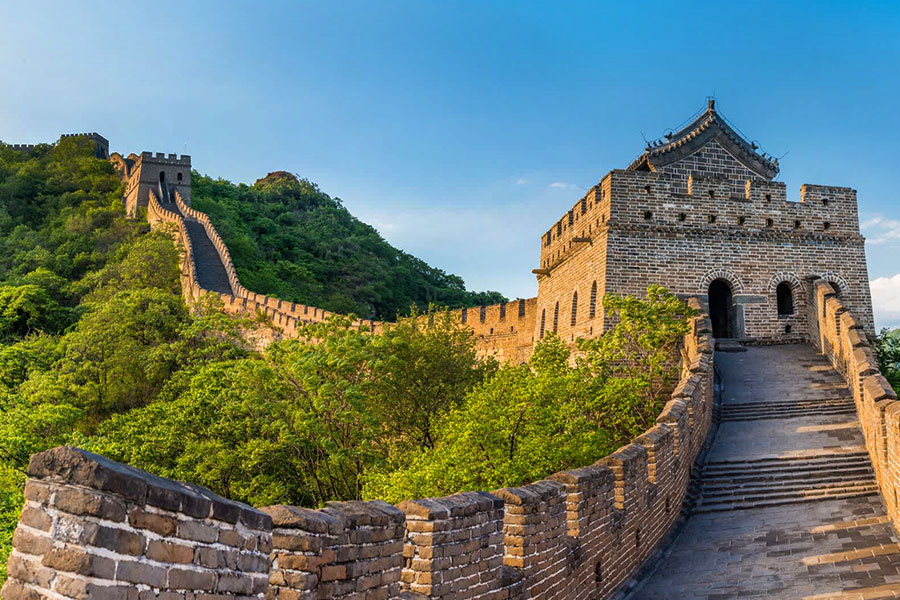
China’s Rich Cultural Heritage: China’s history dates back thousands of years, and its cultural heritage is a treasure trove of ancient traditions, art, and architecture. From the majestic Great China Wall to the awe-inspiring Forbidden City, exploring China’s historical sites is like stepping into a living museum.
Spectacular China’s Landscapes: China’s landscapes are incredibly diverse, offering a visual feast for nature enthusiasts. From the serene karst mountains of Guilin to the breathtaking beauty of the Zhangjiajie National Forest Park, the country’s natural wonders never fail to captivate visitors.
Chinese Culinary Delights: Chinese cuisine is renowned worldwide for its variety and flavors. Tasting authentic dishes like dim sum, Peking duck, and Sichuan hotpot in their country of origin is a culinary adventure that delights the taste buds.
Fascinating Festivals in China: Traditional Chinese festivals are vibrant and culturally significant. Witnessing events like the colorful Lantern Festival or the exuberant Dragon Boat Festival provides a unique insight into the country’s rich traditions and customs.
Modern Marvels: China’s rapid development has led to futuristic cities with impressive skyscrapers, advanced transportation systems, and cutting-edge technology. Cities like Shanghai and Shenzhen showcase the country’s modern achievements and offer a glimpse into its fast-paced urban lifestyle.
Traveling to China offers a unique journey into a land of ancient and modern wonders. Explore the Great Wall’s majesty and witness the tranquillity of beautiful landscapes, delicious diverse cuisines, and vibrant traditions. Discover the great mix of history and innovation, and make unforgettable memories in China’s fantastic landscapes and rich cultural heritage.
Visiting China is an extraordinary opportunity to go on a journey of discovery and wonder. There are numerous compelling reasons why one should visit China, this vast and diverse country.
China’s Rich Cultural Heritage: China’s history dates back thousands of years, and its cultural heritage is a treasure trove of ancient traditions, art, and architecture. From the majestic Great China Wall to the awe-inspiring Forbidden City, exploring China’s historical sites is like stepping into a living museum.
Spectacular China’s Landscapes: China’s landscapes are incredibly diverse, offering a visual feast for nature enthusiasts. From the undisturbed karst mountains of Guilin to the breathtaking beauty of the Zhangjiajie National Forest Park, the country’s natural wonders never fascinate visitors.
Chinese Culinary Delights: Chinese cuisine is renowned worldwide for its variety and flavors. Tasting authentic dishes like dim sum, Peking duck, and Sichuan hotpot in their country of origin is a culinary adventure that delights the taste buds.
Fascinating Festivals in China: Traditional Chinese festivals are vibrant and culturally significant. Witnessing events like the colorful Lantern Festival or the high-spirited Dragon Boat Festival provides a unique insight into the country’s rich traditions and customs.
Modern Marvels: China’s rapid development has led to futuristic cities with impressive skyscrapers, advanced transportation systems, and cutting-edge technology. Cities like Shanghai and Shenzhen showcase the country’s modern achievements and offer a glance into its fast-paced urban lifestyle.
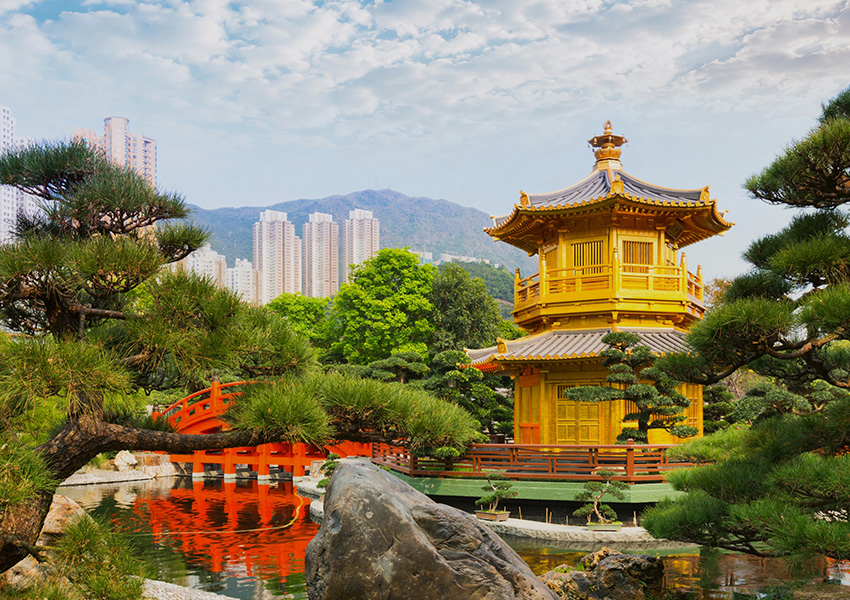

China offers an array of top-notch tourist destinations that capture the hearts of travelers. The Great Wall of China, a UNESCO World Heritage Site, remains an iconic marvel that spans centuries. The Forbidden City in Beijing, an imperial palace complex, exudes grandeur and historical significance. The Terracotta Army in Xi’an showcases an awe-inspiring collection of ancient warriors. The picturesque Li River in Guilin delights with its karst landscapes and serene cruises.
The modern metropolis of Shanghai dazzles with its skyscrapers, shopping, and culture. These top five destinations provide an unforgettable journey through China’s history, nature, and urban allure.
China is home to several top tourist cities, each offering unique experiences:
Beijing: The capital city boasts historical wonders like the Forbidden City and Tiananmen Square, alongside modern architecture and a vibrant culinary scene.
Shanghai: A bustling metropolis known for its futuristic skyline, high-end shopping, and vibrant nightlife along the Bund.
Xi’an: Famous for the Terracotta Army, Xi’an also holds ancient city walls and rich cultural heritage.
Guilin: Known for its picturesque karst landscapes, the Li River cruise and Yangshuo’s countryside are nature lovers’ paradise.
Chengdu: Famous for its adorable pandas, Chengdu also offers spicy Sichuan cuisine and a laid-back atmosphere.
Hong Kong: This dynamic city captivates with its vibrant street markets, stunning harbor views, and a fusion of Eastern and Western influences.
China offers a plethora of thrilling adventure highlights for intrepid travelers. The Great Wall stands as an iconic symbol of China’s history and offers breathtaking hikes with panoramic views. Explore the mystical karst landscapes of Guilin and cruise along the Li River for an unforgettable experience.
In Zhangjiajie, marvel at the surreal Avatar-like mountains and traverse the thrilling glass-bottomed bridge. For outdoor enthusiasts, trek the magnificent Tiger Leaping Gorge or challenge yourself with a sacred pilgrimage to Mount Kailash. The diverse landscapes, rich cultural heritage, and adrenaline-pumping activities make China an ideal destination for adventurous souls seeking unforgettable experiences.
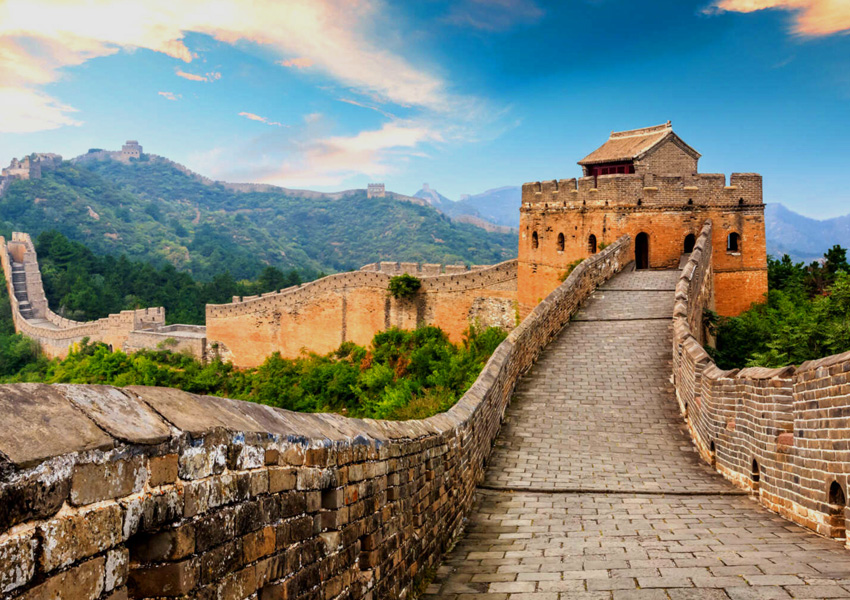
Loading ..
Customize your own holiday! Just tell us what is your need and our experienced travel consultants will suggest you the best trip plan that suits you.
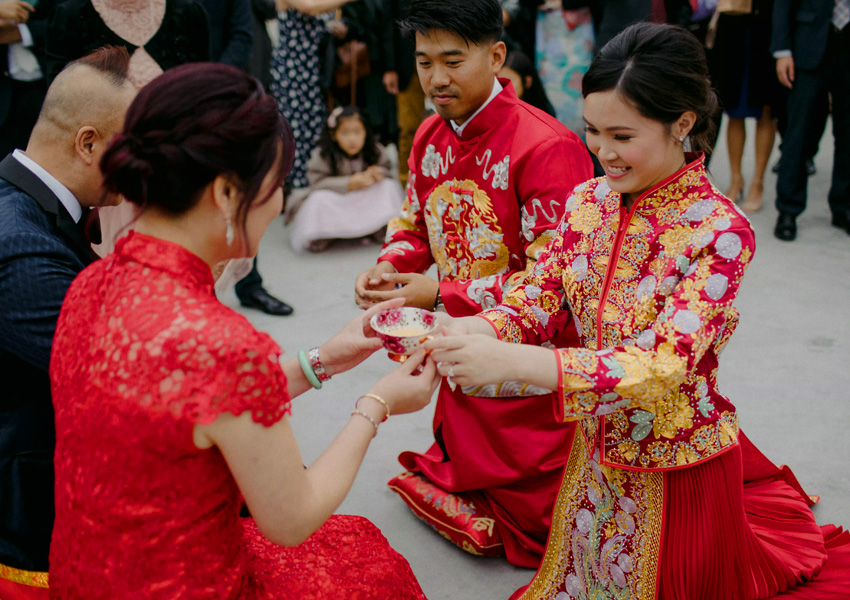
China’s etiquette and customs reflect the country’s deep-rooted cultural traditions and values. Respect for hierarchy and elders is crucial, often demonstrated through deferential language and gestures like bowing or nodding. When meeting someone, a handshake is becoming more common, but it’s essential to follow the lead of the other person. Gift-giving is customary and symbolizes goodwill, but avoid sharp objects or clocks, which are associated with negative connotations. Chinese dining etiquette includes not sticking chopsticks vertically in a bowl, as it resembles funeral rituals.
Refusing a gift initially is polite, but persistence is key when offering or receiving presents. Avoiding sensitive topics like politics or religion is prudent, as is being mindful of personal space in crowded places. Understanding and embracing these customs will enhance cultural understanding and pave the way for positive interactions with the warm and hospitable Chinese people.
Chinese greeting and meeting etiquette hold great cultural significance in China. When meeting someone for the first time, a handshake is common, but a nod or slight bow is also acceptable. Addressing individuals with their proper title and surname shows respect. When exchanging business cards, use both hands and read the card before putting it away. Avoid discussing sensitive topics like politics and religion. During gatherings, toast with enthusiasm and accept toasts graciously. Always wait for the host to begin eating before starting your meal. Observing these customs showcases your understanding and appreciation of Chinese culture, fostering positive relationships and mutual respect.
China’s food and culinary scene is a delightful and diverse tapestry of flavors, textures, and regional specialties. With a history dating back thousands of years, Chinese cuisine boasts a rich culinary heritage influenced by various dynasties, ethnic groups, and geographical landscapes. From the fiery and bold spices of Sichuan cuisine to the delicate and refined dishes of Cantonese cuisine, each region offers a unique gastronomic experience.
Dumplings, dim sum, and Peking duck are iconic Chinese dishes celebrated worldwide. Noodles, whether hand-pulled or wok-tossed, are an integral part of Chinese cuisine, served in countless variations. Rice is a staple food, and China’s vast rice paddies have cultivated a myriad of rice-based delicacies.
Food plays a significant role in Chinese culture, from family gatherings to festive celebrations. The concept of “harmony in food” reflects the balance of flavors, colors, and nutritional value in a meal. Chinese culinary artistry emphasizes texture, aroma, and presentation, making dining a sensory adventure.
Chinese tea culture is equally noteworthy, with a wide variety of teas offering diverse tastes and health benefits. Teahouses are social hubs where friends, families, and business associates gather for conversation and relaxation.
Chinese culinary artistry is celebrated worldwide for its diverse flavors, intricate techniques, and historical significance. With a culinary history spanning thousands of years, China boasts an array of regional delicacies that reflect its cultural diversity.
Peking Duck: A Beijing specialty, Peking duck is renowned for its crispy skin and succulent meat, often served with thin pancakes, scallions, and hoisin sauce.
Kung Pao Chicken: A classic Sichuan dish, Kung Pao Chicken combines tender chicken, peanuts, and spicy chili peppers for a tantalizing taste.
Dim Sum: A Cantonese tradition, dim sum is a delightful assortment of bite-sized dumplings, buns, and small dishes, perfect for a leisurely brunch.
Hot Pot: A communal dining experience, hot pot involves cooking various raw ingredients in a simmering broth at the center of the table, offering a customizable and flavorful feast.
Xiaolongbao: Originally from Shanghai, these delicate soup dumplings are filled with savory broth and meat, making them a delicious and comforting treat.
Each dish showcases the diversity and sophistication of Chinese cuisine, inviting food enthusiasts on a remarkable culinary journey through the flavors of China.
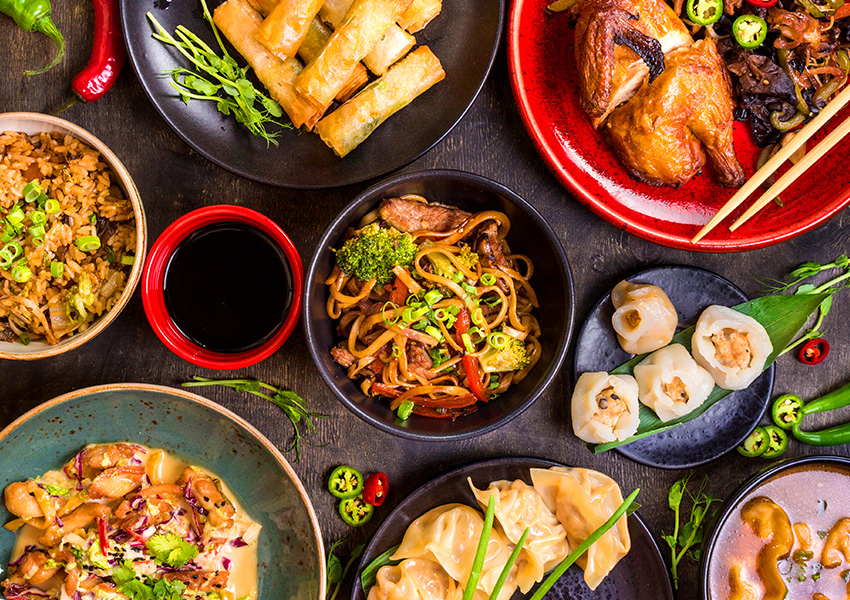
Savor a symphony of flavors that define culinary artistry.
Chinese cuisine tantalizes with aromatic spices, succulent Dim Sum, and enjoy Chinese culinary artistry.
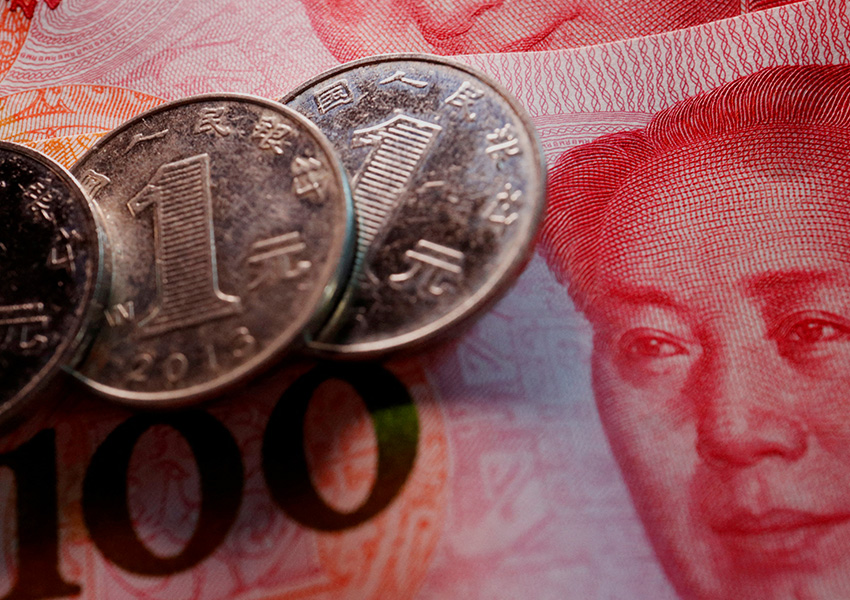
China’s currency is known as the Renminbi (RMB), which translates to “People’s Currency.” The basic unit of the Renminbi is the Yuan (CNY), represented by the symbol ¥. The Renminbi is issued by the People’s Bank of China, the country’s central bank. The currency comes in various denominations, including banknotes for 1, 5, 10, 20, 50, and 100 Yuan, and coins for smaller fractions known as Jiao and Fen.
While cash is still commonly used in everyday transactions, China has also embraced digital payment methods like Alipay and WeChat Pay, making it a leader in the digital payment revolution.
When traveling to China, it is generally recommended to bring USD (United States Dollar) rather than Euro. While some places in China may accept Euro, USD is more widely recognized and easily exchangeable at banks and currency exchange counters.
Here are some tips for taking money to China:
USD Cash: Bring some USD in cash, preferably in smaller denominations, for easier transactions and flexibility. Major airports, hotels, and banks in China can exchange USD for Chinese Yuan (CNY).
ATM Withdrawals: You can use your international debit or credit card to withdraw CNY directly from ATMs in China. Visa and MasterCard are commonly accepted, but it’s a good idea to inform your bank about your travel plans to avoid any potential issues.
Currency Exchange: Exchange USD to CNY at banks or authorized currency exchange centers in China for better rates than at airports or hotels.
Traveler’s Cheques: Traveler’s cheques are becoming less common, and you might encounter difficulty finding places that accept them. It’s better to carry cash or use cards for convenience.
Notify Your Bank: Inform your bank about your travel dates and destinations to prevent your cards from being blocked due to suspicious transactions.
Remember to carry your money securely and be cautious of pickpockets in crowded areas. It’s a good idea to have a mix of payment methods, including cash and cards, to ensure you have options for various situations during your stay in China.
China’s dress code is influenced by its rich history, diverse culture, and social norms. Traditional Chinese attire includes the elegant Qipao or Cheongsam for women and the loose-fitting Changshan for men. These garments often feature intricate embroidery and vibrant colors, reflecting the country’s artistic heritage. In modern times, Western clothing has become prevalent in urban areas, but conservative dressing is still appreciated in formal settings and religious sites.
When traveling to China, opt for comfortable, modest clothing that respects local customs. Dressing conservatively is recommended, especially when visiting temples or rural areas. Pack layers for varying weather, and bring comfortable walking shoes. Respect for modesty and avoiding revealing clothing is generally expected. Additionally, certain workplaces may have specific dress requirements.
Adapt to local norms while embracing your personal style for a seamless and respectful travel experience in China. Overall, China’s dress code blends tradition with contemporary fashion, showcasing the nation’s unique style.
Male Attire – Changshan:
The Changshan, a male traditional garment, epitomizes understated elegance. Its straight-cut lines and Mandarin collar symbolize Confucian virtues of modesty and harmony. Historically, its subdued colors represented social class. Today, the Changshan’s fusion of tradition and modernity reflects China’s journey through time.
Female Attire – Qipao or Cheongsam:
The Qipao, a symbol of feminine grace, celebrates the female form while emphasizing modesty. Its form-fitting silhouette and high collar embody cultural values of humility and restraint. The dress’s evolution reflects China’s societal shifts, from the Qing Dynasty’s elaborate embroidery to the modern Cheongsam’s sleek lines.
Both attires encapsulate China’s philosophy of balance, embracing history and innovation. They echo Confucian ideals of harmony, modesty, and respect for tradition. As China embraces modernity, these traditional garments remain poignant reminders of its cultural legacy.

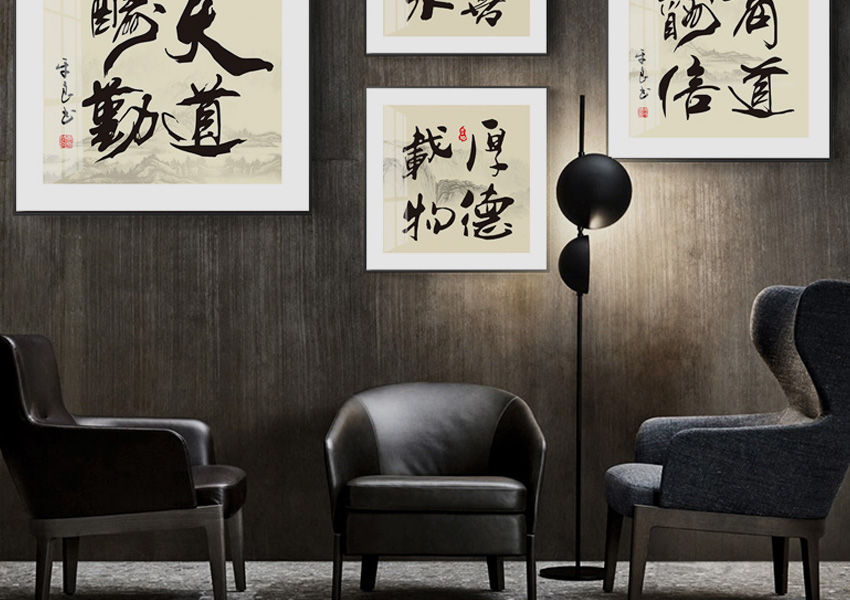
China’s language, Mandarin Chinese, plays a central role in the country’s culture and identity. Mandarin is the official language, spoken by the majority of the population, and is based on the Beijing dialect. Unlike alphabetic languages, Chinese uses characters, each representing a syllable or concept. The Chinese writing system dates back thousands of years and has undergone various evolutions.
The Chinese writing system is known as “Hanzi,” and it is composed of thousands of characters. While this complexity presents a challenge to learners, it also offers a deeper understanding of Chinese culture and history. Additionally, there is a phonetic system called “Pinyin” that uses the Roman alphabet to transcribe Mandarin pronunciation, making it easier for learners to speak and study the language.
With over a billion speakers worldwide, learning Mandarin and understanding the Chinese writing system opens doors to cultural exchange, business opportunities, and a deeper appreciation of one of the world’s oldest and most influential civilizations.
Hello: 你好 (Nǐ hǎo)
Thank you: 谢谢 (Xièxiè)
Yes: 是 (Shì)
No: 不是 (Bù shì)
Please: 请 (Qǐng)
Excuse me: 不好意思 (Bù hǎo yìsi)
Sorry: 对不起 (Duì bù qǐ)
Goodbye: 再见 (Zàijiàn)
How much is this?: 这个多少钱? (Zhège duōshǎo qián?)
Where is…?: …在哪里? (… zài nǎlǐ?)
I don’t understand: 我不懂 (Wǒ bù dǒng)
Help!: 救命! (Jiùmìng!)
My name is…: 我叫… (Wǒ jiào…)
Where can I find a taxi?: 我在哪里可以找到出租车? (Wǒ zài nǎlǐ kěyǐ zhǎodào chūzūchē?)
I need a doctor: 我需要医生 (Wǒ xūyào yīshēng)
I’m lost: 我迷路了 (Wǒ mílù le)
Can you speak English?: 你会说英语吗? (Nǐ huì shuō Yīngyǔ ma?)
What is this?: 这是什么? (Zhè shì shénme?)
Where is the bathroom?: 厕所在哪里? (Cèsuǒ zài nǎlǐ?)
Delicious!: 好吃! (Hǎo chī!)
These phrases will help you navigate and communicate while traveling in China, enhancing your experience and interactions with locals.
When traveling to China, it’s essential to be aware of the emergency numbers that can assist you in times of need.
It’s crucial to note that these emergency numbers are typically in Mandarin Chinese. If you’re not fluent in the language, it’s advisable to carry a translation app or have a local contact who can assist you in case of emergencies.
120- Ambulance & Medical Emergency: To request an ambulance or medical help in case of accidents or health emergencies.
114: Directory inquiries
Fire Brigade: 125
Police: 110 (112 from mobile (cell) phones will also get you through to the local police)
119 -Fire & Rescue: To report fires or seek help during fire-related incidents.
Shanghai Pudong International Airport: +86 21 96990
Yinchuan Hedong International Airport: +86 951 96111
Shenzhen Bao’an International Airport: +86 755 2345 6789
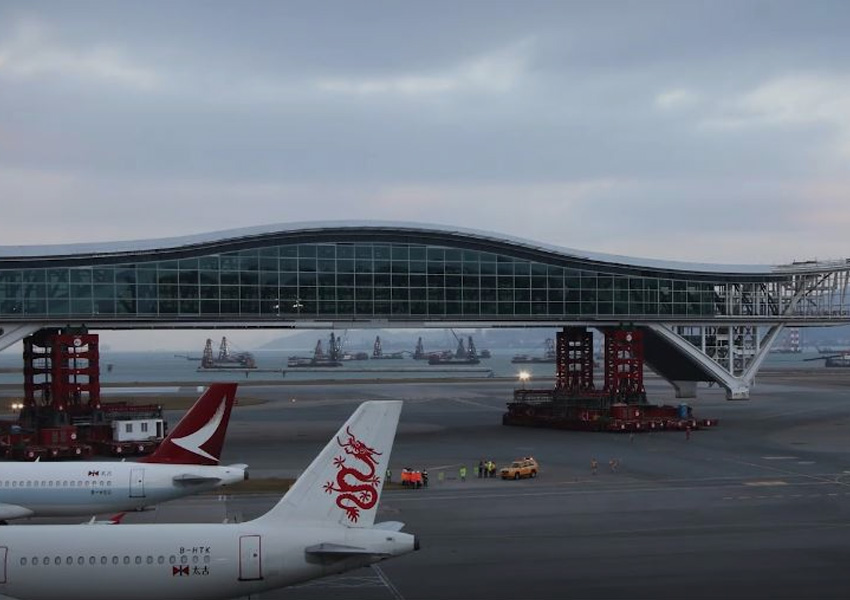
China stands as a top world destination, mesmerizing travelers with its ancient wonders like the Great Wall and modern marvels like Shanghai’s skyline. From the delicious cuisine to diverse cultures, China offers an unforgettable journey blending tradition and innovation, leaving an indelible mark on every visitor.

Introduction At the beginning of this exploration into Persian nose

Safe Summer Cosmetic Procedures are essential to keep your skin

Iran dress code is a set of rules about how
Subscribe to see secret deals prices drop the moment you sign up!
You have successfully joined our subscriber list.